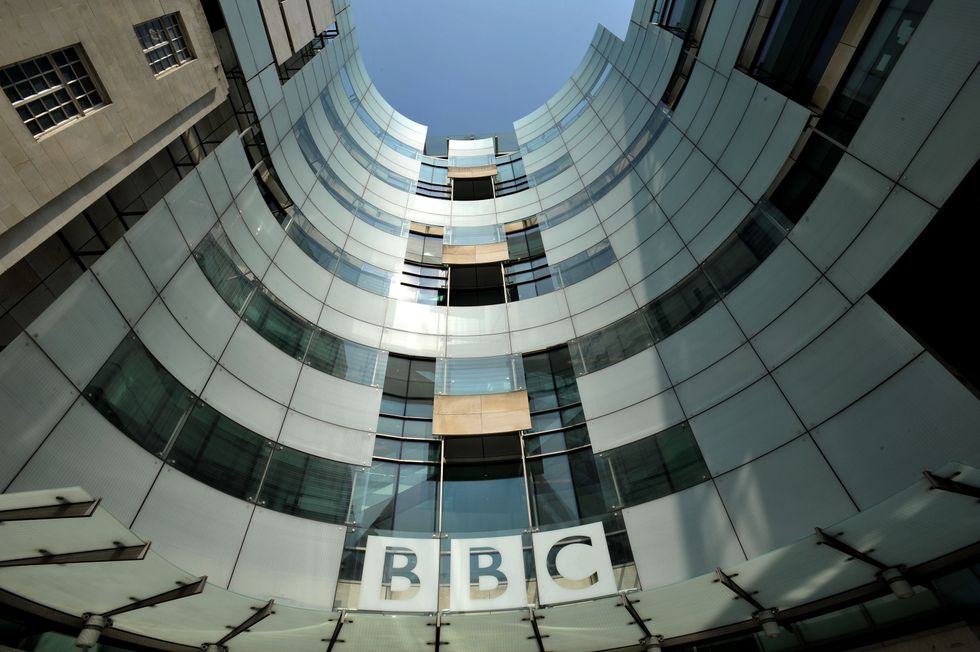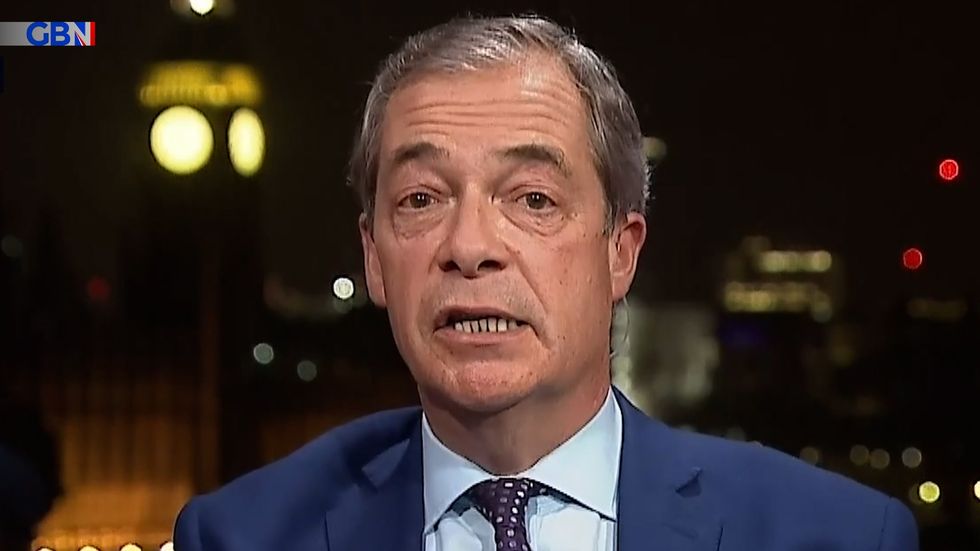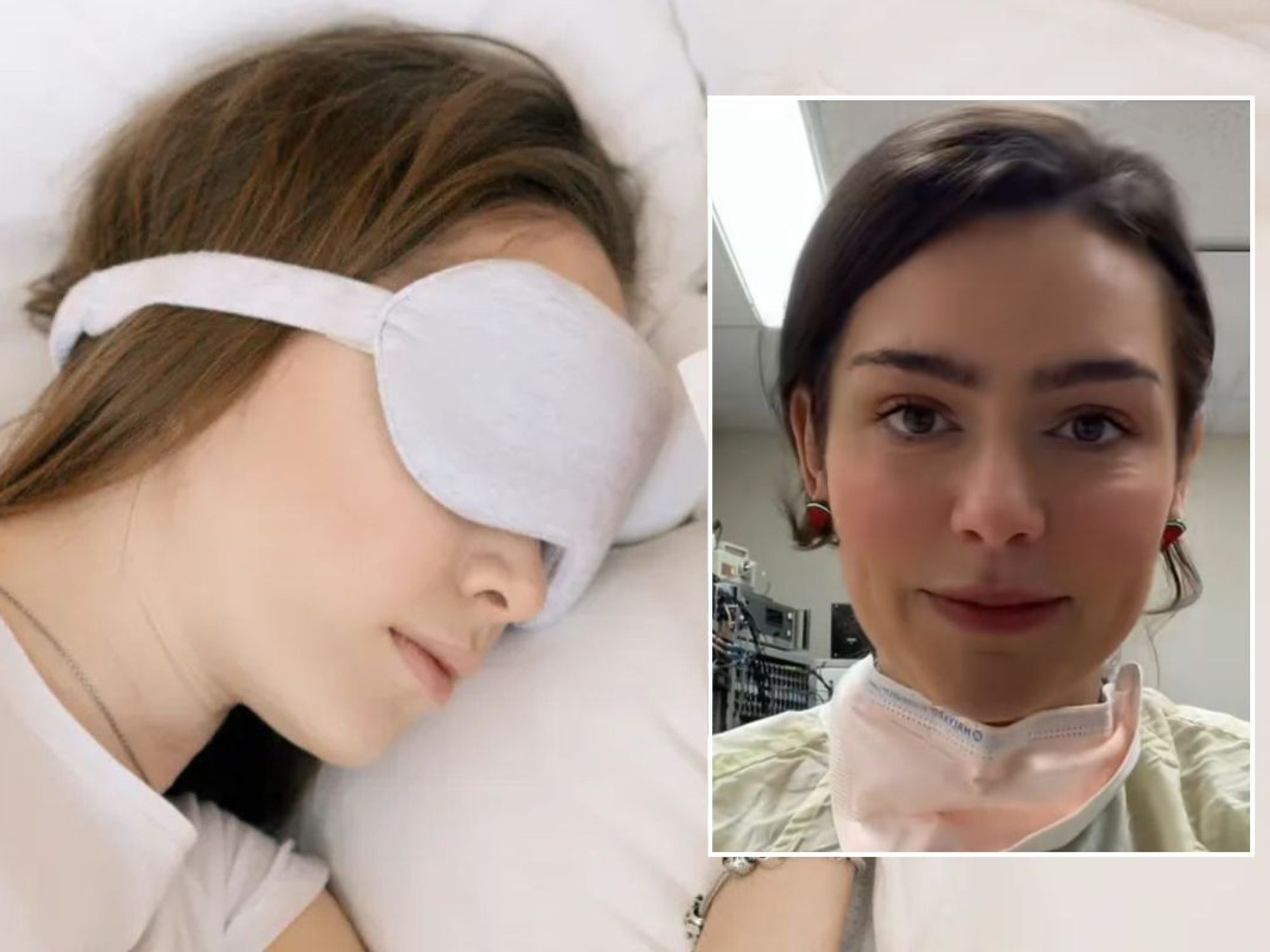
The BBC has written to apologise to Nigel Farage for its "incomplete and inaccurate" report about the closure of the GB News presenter's Coutts bank account
GB News
Damning screenshots revealed the real reason Nigel Farage's bank account was closed
Don't Miss
Most Read
Trending on GB News
The BBC has written to apologise to Nigel Farage for its "incomplete and inaccurate" report about the closure of the GB News presenter's Coutts bank account.
The broadcaster was forced to amend a story suggesting Farage's accounts were closed due to his funds falling below the private bank's financial threshold.
His account with had been closed earlier this month after the bank said they no longer wanted him as a customer.
A 40-page dossier revealed Coutts chiefs made a concerted effort to “exit” him as a customer as they didn’t believe the former Ukip leader aligned with their views.

The broadcaster was forced to amend a story suggesting Farage's accounts were closed due to his funds falling below the private bank's financial threshold
PAThe BBC has since published an amended story quoting sources "familiar" with the situation which claimed Coutts made the "commercial decision" to shut Farage's personal and business accounts.
An apology letter from CEO, BBC News & Current Affairs Deborah Turness reads: "Thank you for your letter to Tim Davie on 22nd July regarding the BBC’s coverage of the story relating to your Coutts Bank accounts.
"I have reviewed what happened since we received your letter on Saturday. It’s clear that the story we originally published, based on information provided by our source, turned out to be inaccurate.
"While our teams took the correct steps in rectifying this on-air and on our Corrections and Clarifications page, I can understand why you feel this story has contributed to you being put through a considerable and humiliating amount of publicity.
"I would therefore like to apologise to you on behalf of BBC News.
"For context, I would also like to explain what happened and the steps that were taken since the BBC first published the story about your bank accounts. We have reviewed the actions we took as the story evolved.
"Our Business Editor, Simon Jack, was told by a senior and trusted source that the bank contested the story that you had put into the public domain - i.e. that Coutts had closed your accounts for political reasons.
"The source said your accounts had been closed for commercial reasons. We felt this was a story of significant public interest and went back to the source to check they were happy for us to publish the information. They said they were.
"Simon Jack spoke to you on July 4th to let you know about the story that we intended to run, informing you that a source had told BBC News you had fallen below the financial threshold for a Coutts account.
"Your response was quoted extensively in the coverage, and you appeared on BBC Radio 4’s the World at One to give your own account of the story.
"After the information from your subject access request was published, it became clear that your political views were involved in the bank’s decision to close your accounts.

A 40-page dossier revealed Coutts chiefs made a concerted effort to “exit” him as a customer as they didn’t believe the former Ukip leader aligned with their views
GB News"BBC News reported the new information widely and you appeared on BBC Radio 4’s World at One and Newsnight to give your reaction.
"As you point out in your letter, our Analysis Editor, Ros Atkins, also covered the story and concluded that what the original source had told BBC News was inaccurate, and so was a headline that had not attributed the claim to the source.
"BBC News amended that headline and put a note above the online article to make it clear new evidence had come to light about the story.
"We also posted a note explaining the above on our Corrections and Clarifications page.
"This clearly acknowledged that the information we reported - that Coutts’ decision on your account did not involve considerations about your political views - turned out to be inaccurate.
"I hope this helps to clarify the actions we undertook and would like to once again apologise on behalf of BBC News."








